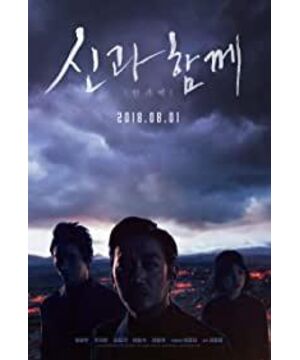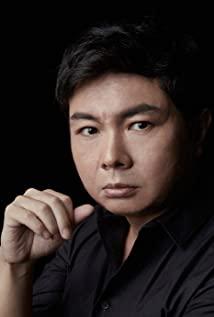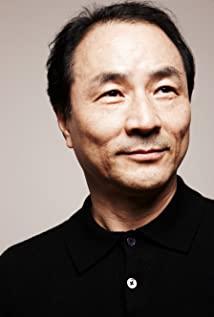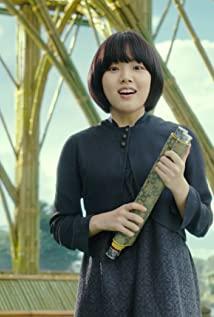1 | Introduction
At the end of last year, "Walk with God: Crime and Punishment" not only continued to break the box office in South Korea, but also had an amazing popularity on the domestic Internet. This "Walk with God: Cause and Fate" is its sequel. When filming, it was filmed along with it. It's not like other movies that throw out a movie first, and then hurriedly shoot after watching it. A sequel. The advantage of shooting two films at the same time is probably that the connection between the two films is more natural, and there is not much need to make up for the "black hole level" loopholes.
Then why do I say that it is a different formula, but has the same taste? Because this movie was being hailed in South Korea at the time, it was criticized by many audiences, and this movie also existed. Here, it is necessary to compare a few points of the two movies to further explain in detail the good and bad of this movie.
2 | Sense of Violation
After watching this movie, some viewers said that they had an uncomfortable feeling, or even disliked it. For the time being, I say that this feeling comes from the "sense of violation" within the movie, and this feeling of violation comes from the logic of its story. The story logic is sometimes relatively smooth, but sometimes the logic is not smooth, which is unconvincing. This lack of fluidity is due to the co-existence of "not logical" and "forcibly making it logical", and this writing is all in the service of "moving". The feeling is that the audience is forced to cry, or it is difficult to find tears.
At the same time, for the tension of the story, we saw that it immediately showed the great emotional changes between our actors after setting up a story. As far as the second part is concerned, the past lives of the three messengers are constantly being clarified. During this period, they suddenly turned against each other at each story node, and suddenly cherished each other, repeatedly. This may be the price that must be paid in order to digest the huge worldview within 2 hours.
3 | Cause and Fate
Indeed, we saw a very compact plot in the first one, because compared to the extremely long comics, the length of the movie is difficult to fully understand it. So we saw a bit dazzling story rhythm, and some far-fetched story guidance. Of course, thanks to a lot of content in the first part, this one will not become particularly messy when the four story lines jump back and forth.
The last one clearly focused on hell itself, which is to show more of what a "kind person" should be like, like a "moral guide", to bring us "forgiveness and tender reunion." This part is more to show us how people who make mistakes can practice atonement. This process of atonement is the beginning of the whole story, the "cause", and the cornerstone of the "destiny" that makes them quarrel and quarrel every day, but after all, they walk together.
4 | Tradition and Modernity
We set our sights on the hell itself. We will see that these regional messengers are dressed in modern styles, but the costumes of others (the Yama, the judge, the kings of various prisons, etc.) are extremely retro. In the second part of this question, Ma Dongxi’s caster god said: "That fellow Yan Luo, is he still wearing long hair recently?", and expressed his contempt and disdain.
This movie is actually very risky. Whether in China or South Korea, we are constantly questioning and criticizing traditions, and we are proud of transcending traditions, or transcending the "Oriental". Of course, there is also a countercurrent force that prides itself on "national style" and "carrying forward tradition." Therefore, in this story full of Eastern values (or Confucian culture), whether its values can be accepted by people and can be tested by modern mainstream media becomes intriguing.
The punishment method in this movie is very traditional, especially in the tongue hell, where the surroundings are discarded electronic devices, but the punishment method is actually to pull the tongue with pliers. The weapon used by the messenger in a suit is not a modern thermal weapon, but a sword. The city lord god is so powerful, but what he is hosting is a small clay pot. This story seems to be no problem, but it shows us the dislocation combination of modernity and tradition. This combination is not bad, but it tells us reflexively the big gap between modernity and tradition.
In the first part, the audience chanted that they might not be able to pass through a hell. The "hell culture" itself is a product of a high degree of integration of Buddhism, Taoism and Confucianism. The judging criteria given in this movie also surround "benevolence, justice, etiquette, wisdom and trust." The audience began to question its current applicability and criticized its behavior of returning to traditional values. But in the second part, the proportion of this kind of value problem becomes smaller, and more is to unlock the foreshadowing buried in the first part.
5 | Practice Atonement
In the second part, we saw the challenge to trust and morality, in this vortex, the state of struggle and distress, and the process of practicing atonement. All the "anti-hell law" matters in the first part are important to be "forgiven", but the second part turns their attention back to the wrongdoers themselves, allowing them to redeem themselves for the rest of their lives.
At the end of the first part, when people saw Jin Xiuhong and Ma Dongxi playing the city lord gods, people actually thought that the two of them would be the protagonists of the second part. Especially in South Korea, Ma Dongseok's image is deeply rooted in the hearts of the people, and several films that can be called "Ma Dongseok movies" have been released in succession. These movies all use Ma Dongxi's thick muscles to implement his "invincible" body to "walk the way for the heavens" that transcends the law. If it were the period when the first film was released last year, perhaps an image like Ma Dongxi would be loved. But after several such movies were shown in succession, this movie was very clever and showed us an image that is very strong to the messenger of hell, but low-pitched when facing humans. This kind of strong contrast has not lost Ma Dongxi's own "physical" impression, nor has it fallen into stereotypes.
And such Ma Dongxi played the city lord god and Jin Xiuhong, their position is not to lead the story, but to guide the three messengers to look back and see themselves clearly. Jin Xiuhong said to Jiang Lin: "I see this trial, not trying to judge me at all, but to judge you." That's right, in the huge worldview of this movie, the lives of the three messengers melted behind it, even Run through the whole hell. During the trial of 49 nobles, the messengers were defending the pitiful and kind, and at the same time "practising redemption" for their mistakes at the time.
Finally, I am making a Huixin official account [laizhidy] (laizhidy), welcome everyone to come and play with me.
View more about Along With the Gods: The Last 49 Days reviews











